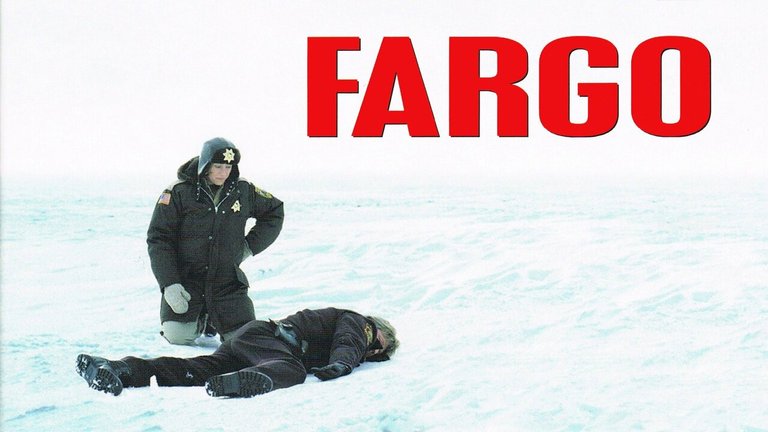Fargo: welcome to the "modern western".
All the screenshots in this post were taken directly from the movie by me.

I just finished watching Fargo (the 1996 film) for the first time, and the first thing that crossed my mind was how retroactively most of the movies and TV shows I've seen in my life have been inspired by it. It's quite ironic considering I've always considered myself a fan of the series of the same name.
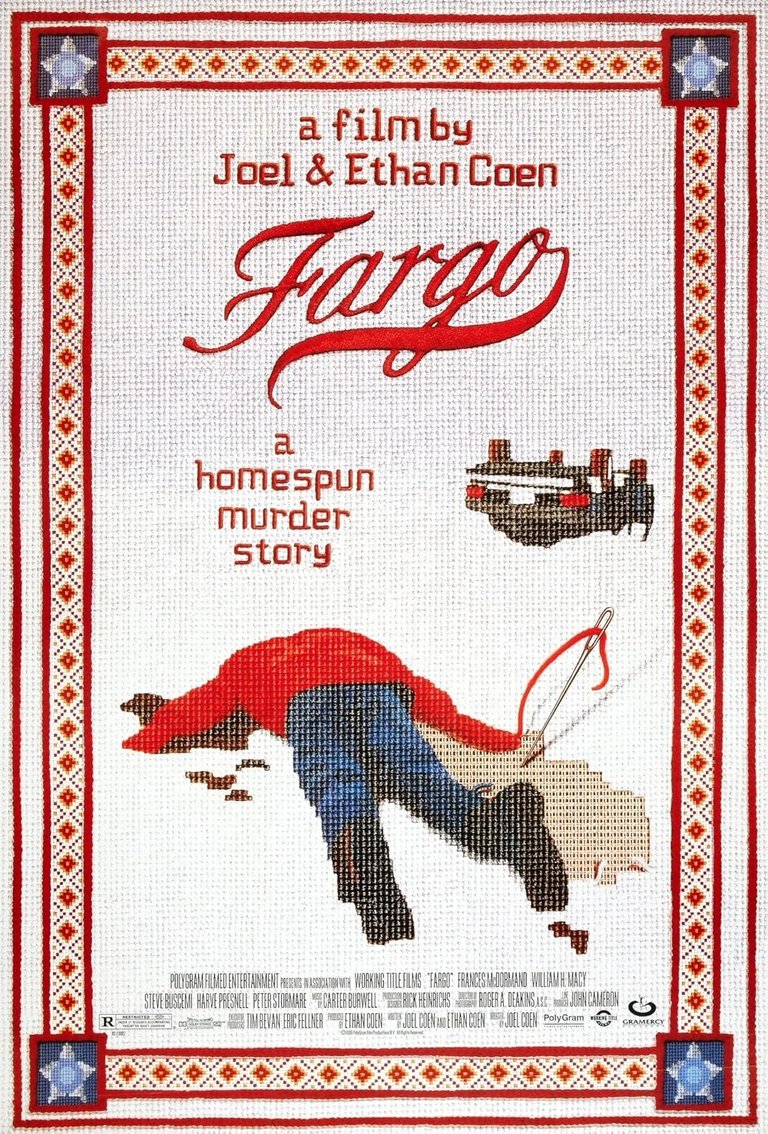
Source
And under the direction and script of the Coen brothers (yes, the same people behind The Big Lebowski and No Country for Old Men), Fargo is one of the most solid audiovisual pieces I've seen in a long time, a perfect modernization of the western as a genre, simple, yet substantial. For those familiar with the FX series (which, by the way, takes place in the same building), several of its most iconic elements: the dark comedy, the plot built around a violent and stupid crime, the absurdity, the mesmerizing dialogue, as well as the ability to create beauty in a rural American town where it seems like nothing ever happens, until it does.
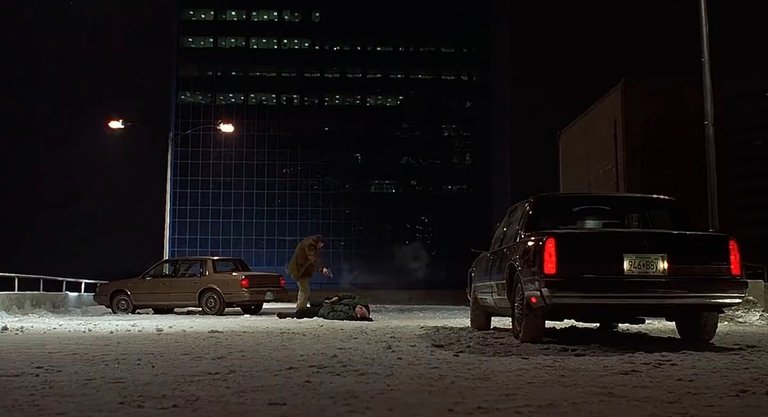
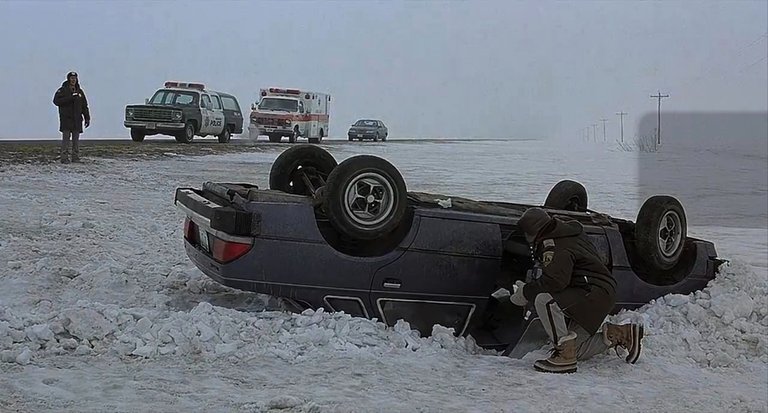
What can I say about it? It's characterized by an impeccable script, executed by several actors giving some of the best performances of their respective careers (Honorable mention to Steve Buscemi, who always excels in dramatic roles). The music, the sustained shots of the white Minnesota landscape.
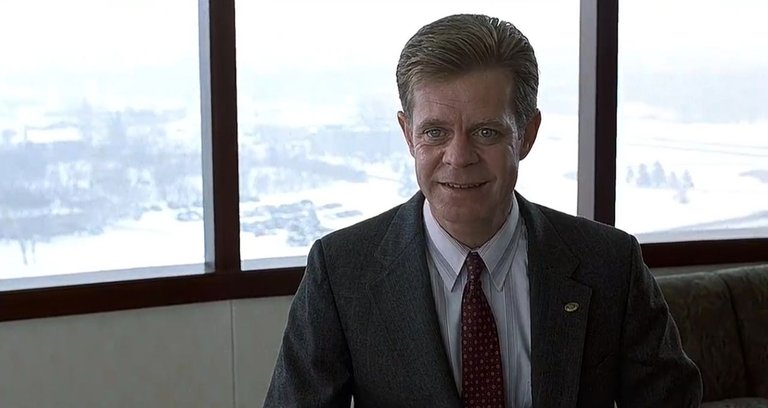
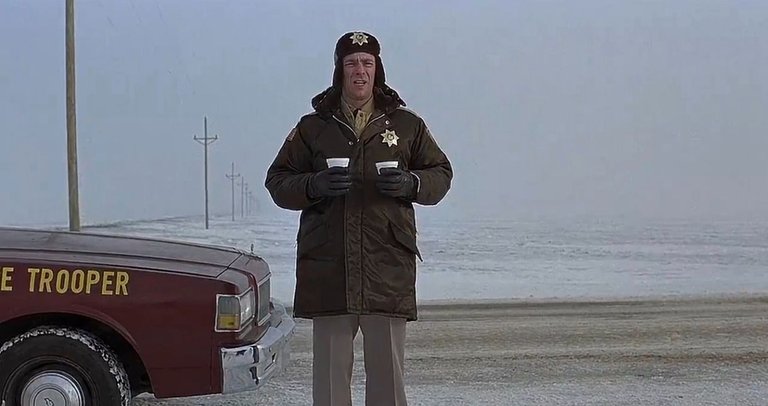
Every element of Fargo comes together to provide a timeless experience, and, without wasting time on pretentious conversations, tells us more about the human condition than many other works that pretend to be more complex.
I'm not bothered by the idea of having waited so long to see this film for the first time, given the fact that it left me with an indescribable desire to continue immersing myself in its universe. So I consider this an ideal time to revisit Noah Hawley's brilliant series, a project that nicely balances the idea of being a spin-off or sequel with a tribute.
I could spend hours looking for the fifth leg of the cat, criticizing small details of the narrative like the fact that everything happens very conveniently to Frances McDormand's character, but the simple truth is that there's something about Fargo's execution that makes it extremely easy to forget all this and simply get carried away by the story unfolding before our eyes.
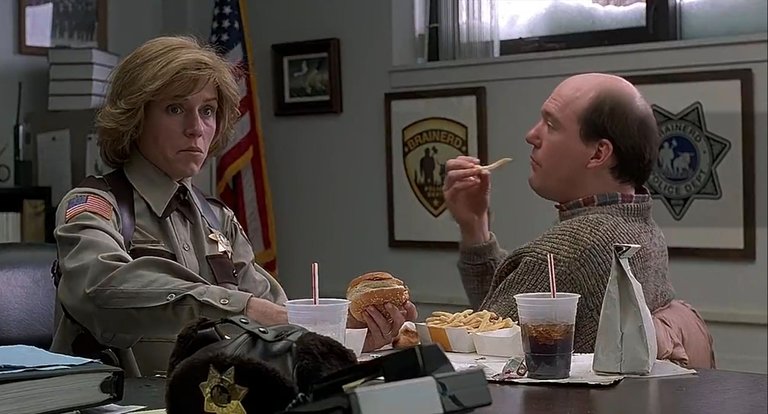
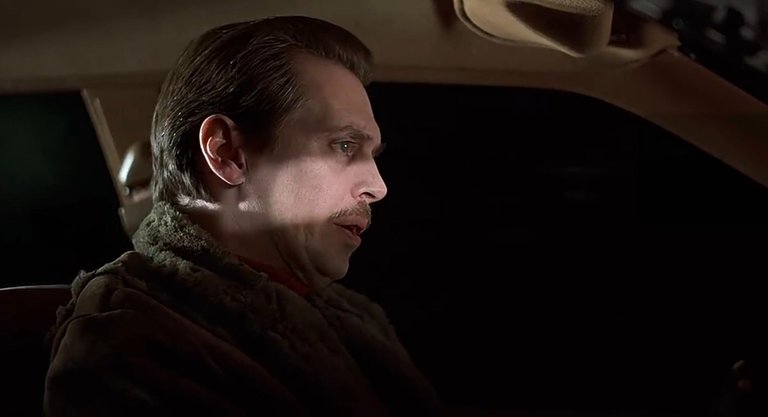
Is it perfect? The answer to this question is entirely subjective; in my case, I couldn't find anything that could knock it off the pedestal I immediately placed it on.
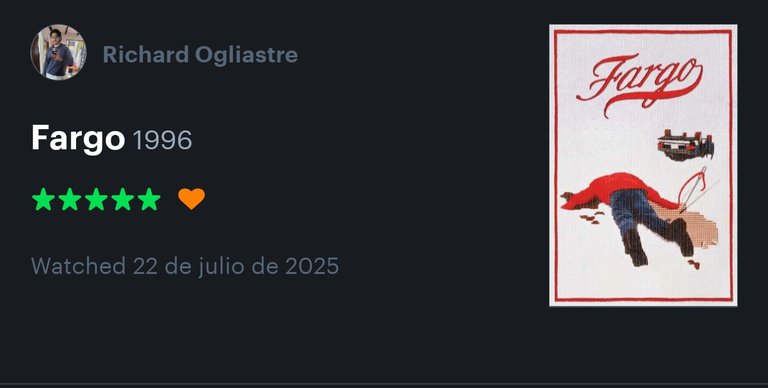
Score taken from my Letterboxd account.

Twitter/Instagram/Letterbox: Alxxssss

